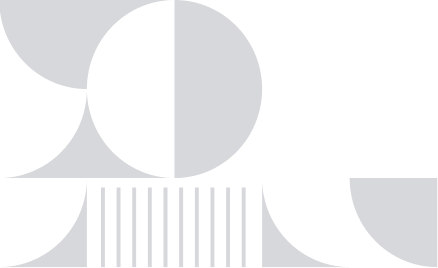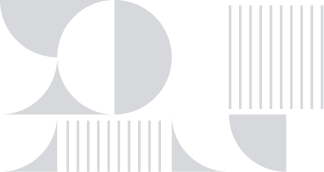




Emmanuel Macron
- France, Vietnam Sign Airbus, Satellite Deals | Macron in Hanoi | N18G
French President Emmanuel Macron visited Vietnam on May 26, marking the first French presidential visit in nearly a decade. Aimed at revitalizing bilateral ties, the trip saw the signing of major agreements involving Airbus planes, nuclear energy, satellites, railways, and Sanofi vaccines. As Vietnam tries to avoid harsh U.S. tariffs through trade commitments, European partners like France seek to maintain their economic foothold. Macron underscored support for freedom of navigation and expanded defense cooperation, addressing shared concerns over China’s activities in the South China Sea.
- Trump, Starmer discuss 'tough and fair' Ukraine peace deal during meeting at White House | N18G
President Donald Trump met with British Prime Minister Keir Starmer at the White House, where Trump emphasized that a minerals deal with Ukraine would serve as the security guarantee Kyiv needs against Russia, downplaying Starmer's plea for increased U.S. military support. Starmer praised Trump's role in making peace in Ukraine possible, while Trump expressed optimism about the progress of his efforts to broker a cessation of violence between Russia and Ukraine. Starmer described the proposed peace deal as “tough and fair” and committed to sending British military forces to support it, including ground troops and aircraft. This meeting came after French President Emmanuel Macron's visit earlier in the week, which showcased contrasting views on the Ukraine conflict, particularly regarding the U.S. push for a quick ceasefire. Starmer is the latest European leader to engage with Trump on the matter of Ukraine's security and peace negotiations.
- Macron Admits AI Training Gap, Pledges Tech Sovereignty with India Ahead of Paris Summit | N18G
Ahead of the global AI summit in Paris, French President Emmanuel Macron spoke exclusively with Firstpost and France TV. Advocating for sustainable and "frugal" AI, he acknowledged that "all countries" trail behind the US in AI training capabilities. Macron also pledged to join Indian Prime Minister Narendra Modi in pushing for tech sovereignty at this week's summit. Watch his full conversation with Palki Sharma.
- Macron Warns Against Local Regulation of AI, Calls for Global Rules | N18G
French President Emmanuel Macron opposes excessive regulations that could hinder AI innovation. Ahead of the AI summit in Paris, he advocates for global AI regulations while warning that local restrictions might slow progress. With India co-chairing the summit, can New Delhi and Paris strike a balance between mitigating AI risks and maximising its benefits?
- AI Will Accelerate Routine Tasks, Won't Replace Humans, Says Macron | N18G
French President Emmanuel Macron dismisses fears of AI replacing humans, viewing it instead as an assistant that accelerates routine tasks. On the eve of the AI summit in Paris, he stresses the need for workforce training to adapt to evolving technology. With India co-chairing the summit, how are New Delhi and Paris preparing their citizens for an AI-driven future?
- Macron Urges India, France and Europe to Seize AI Opportunities at Paris Summit | N18G
French President Emmanuel Macron discusses the potential of Artificial Intelligence as India co-chairs the AI summit in Paris. He emphasises the need for France, Europe, and partners like India to capitalise on AI’s opportunities. Highlighting AI’s transformative impact on medicine, Macron aims to harness its power at the upcoming summit.
- Macron Faces No-Confidence Vote as Government Pushes Budget Bill Through Parliament | N18G
French President Emmanuel Macron faces a strong chance of a no-confidence vote in the National Assembly on December 2 due to the government's plan to use Article 49.3 to push a social security budget bill through parliament. The bill is expected to fail, but opposition parties may trigger the vote. The far-right National Rally (RN) is likely to support the motion, with RN President Jordan Bardella demanding pension increases and opposing cuts to medication reimbursements. Prime Minister Michel Barnier faces criticism, and analysts warn that if the far-right influences the government’s fiscal policies, it could worsen France’s financial situation.
- France's Macron breaks silence, urges new mainstream coalition; Left warns against machinations
French President Emmanuel Macron on Wednesday called on mainstream parties to join forces to form a solid majority in the National Assembly, in his first public comments since Sunday's snap election delivered parliamentary gridlock. The vote, which Macron unexpectedly called after losing to the far-right National Rally (RN) in European elections, has plunged France into uncharted waters, with three politically divergent blocs and no obvious path to forming a government. Watch for more!
- French President Macron calls shock elections after far-right rout
French President Emmanuel Macron's bold move to call snap legislative elections following a defeat to Marine Le Pen's far-right party in the EU vote has sent shockwaves through France. The decision offers the far-right a significant chance at political power, jeopardizing Macron's presidency years before the term ends. If Le Pen's National Rally party secures a parliamentary majority, Macron could find himself with limited influence over domestic affairs. The lower house elections are scheduled for June 30, with a second-round vote on July 7, as Macron faces a pivotal moment in his political career.






